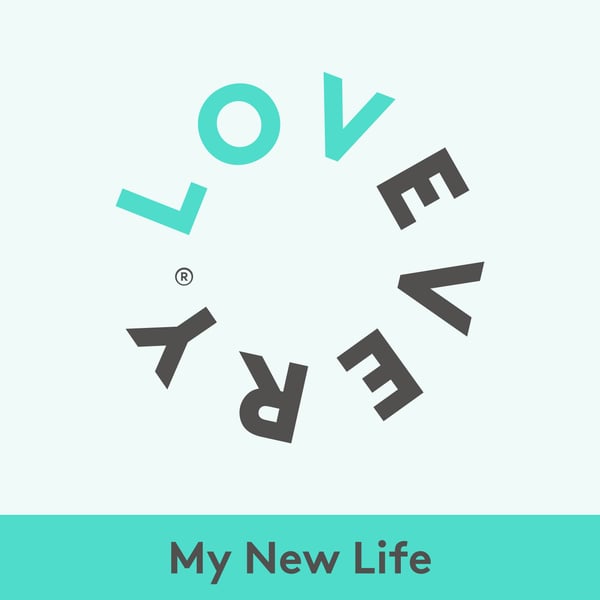How to boost your baby's biome
My New Life
Kate Garlinge
4.7 • 654 Ratings
🗓️ 10 August 2022
⏱️ 24 minutes
🧾️ Download transcript
Summary
We hear a lot about the first 3 years of a baby’s life — how critical those years are to brain development. But today’s guest, the author of The Baby and the Biome, would argue that the same window is just as critical for our gut. Probiotics may have a role in keeping that system healthy. But are probiotics helpful to babies? And what about when you’re pregnant? Jessica Rolph, your host, welcomes Meenal Lele, founder of Lil’ Mixins.
Highlights:
[1:39] When do babies pick up their first dose of bacteria?
[2:54] How does birth affect this bacterial environment? How does the introduction of bacteria differ between a C-section and a vaginal birth?
[4:56] What can people who have C-sections do to replicate the bacteria that’s introduced during a vaginal birth?
[5:58] Should parents bathe their babies right away, or is there any benefit to letting them go unbathed for those first few days?
[7:18] What are significant sources of good bacteria for your baby to build their microbiome in those first weeks?
[9:18] What kind of probiotics does Meenal recommend for mixing into formula? How do you work those into breast milk?
[11:11] When our babies start to eat solid foods, should we supplement with probiotics?
[12:51] What are other benefits of probiotics and supplementation?
[14:22] What would Meenal do if she had a baby now, knowing everything she knows?
[17:18] Why have human microbiomes lost microbial diversity?
[21:52] Jessica shares her top takeaways from the conversation with Meenal.
Mentioned in this episode:
Brought to you by Lovevery.com
Receive weekly emails about your child’s development, and stay in the know about new play essentials, promos, and more by signing up at Lovevery.com
Follow Lovevery and Jessica Rolph on Instagram.
Transcript
Click on a timestamp to play from that location
| 0:00.0 | Parenthood is a time of so much change for you and your baby. |
| 0:13.8 | A little reliable information can go a long way towards making this new life a good life. |
| 0:20.0 | I'm Jessica Rolfe, and this is my new life, |
| 0:24.0 | a love every podcast. While the science aligns on what's healthy for a baby's brain development, |
| 0:30.1 | when it comes to how to care for our babies, there's a seemingly endless supply of competing |
| 0:34.9 | perspectives. Parents are swimming in advice on sleep, feeding, |
| 0:39.5 | and parenting philosophies. In this season of the podcast, we aim to provide a variety of curated |
| 0:46.1 | perspectives so you can make informed choices for your family. From day one, your baby's microbiome is laying the foundation for a healthy immune system. |
| 1:00.6 | Some people even say the immune system is like the body's second brain. |
| 1:05.3 | Probiotics may have a role in keeping that system healthy, but are they helpful for babies? |
| 1:10.0 | And how about when you're pregnant? Today's |
| 1:12.3 | guest on the show has answers. Her new book, publishing in September, is called The Baby and the Biome. |
| 1:19.3 | Mino Lele is also the founder of Little Mixins. Welcome, Minol. Thank you so much for having me. I appreciate it. |
| 1:26.5 | I read somewhere that babies are sterile before birth, so they don't really have a microbiome yet when they're in utero. When do babies pick up their first dose of bacteria? Am I right about this? |
| 1:38.6 | It's not totally clear, actually, right? It's one of those things that's really hard to study because if you try to sample we can't |
| 1:45.7 | really sample very well and maybe inside in utero but and then every time we try to if we you know |
| 1:52.0 | we try and sample the amniotic fluid or something we're always going to be pulling bacteria from |
| 1:56.0 | the air and other things onto that sample and so it's really hard to tell. But the basic idea is, yeah, |
| 2:01.9 | it's a sterile environment. And that's mostly because if you think about it, your inside organs, |
| 2:06.8 | right, they're sterile. We don't have, you don't have bacteria on your kidney because it's inside |
| 2:11.9 | your body. You do have bacteria on your skin because that's outside your body, right? At the same time, there is a ton of |
| 2:19.8 | bacteria in the urogenital tract and in the vagina, right? So then a baby in that sense is still |
... |
Please login to see the full transcript.
Disclaimer: The podcast and artwork embedded on this page are from Kate Garlinge, and are the property of its owner and not affiliated with or endorsed by Tapesearch.
Generated transcripts are the property of Kate Garlinge and are distributed freely under the Fair Use doctrine. Transcripts generated by Tapesearch are not guaranteed to be accurate.
Copyright © Tapesearch 2025.

